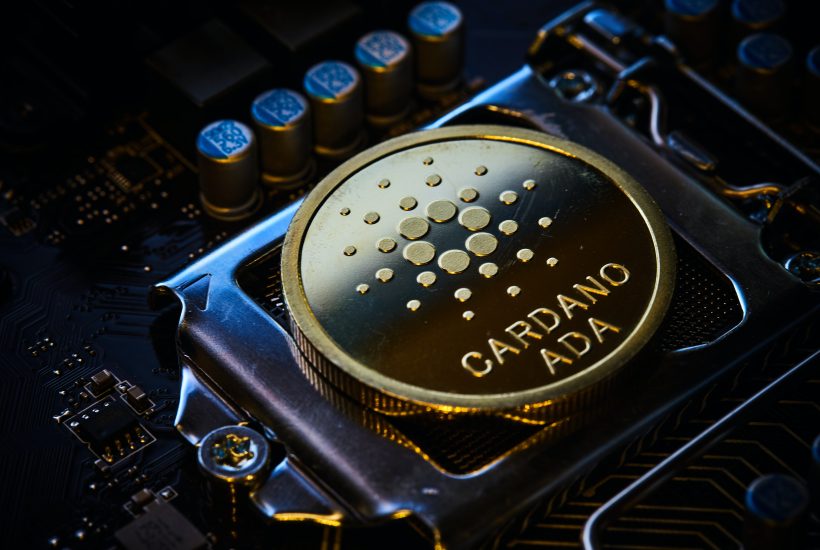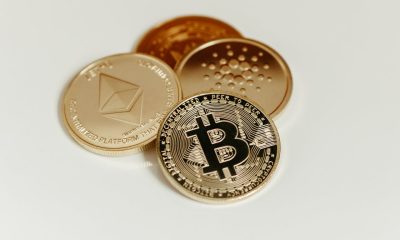Crypto
Cardano (ADA) After the Vasil Upgrade – What Has Changed
Vasil for ADA will provide further improvements to the ecosystem this Tuesday (September 27th). That is because, as planned, it virtually ignites a second stage of the upgrade, which expands possibilities for Plutus on Cardano. Plutus is the programming language for smart contracts at Cardano and thus an important factor in how ADA performs in use cases for Decentralized Finances (DeFi), for example.

On September 22nd, Cardano (ADA) activated the long-awaited Vasil upgrade. Initially, there was no major impact on ADA’s price curve in the surrounding area – but the technological improvements for Cardano through Vasil are visible. Rick McCracken, for example, who organizes a staking pool for ADA, summarized his observations on Vasil on Twitter. According to him, the upgrade has made Cardano more stable, decentralized, and faster overall.
According to McCracken, this can be seen in various indicators. He emphasizes that network points synchronize much better on Cardano after Vasil. This is shown by graphs illustrating how many network points were lagging in synchronization before Vasil and that these near misses have now become a rarity. Synchronization of the Cardano network has been simplified by Vasil and means that, in the best case, all nodes are at the same level of information in real-time. The synchronization rate was over 99 percent for Cardano after Vasil, McCracken says, which is an exceedingly healthy rate.
It’s also directly expressed in the amount of time a new block on Cardano’s blockchain now typically has to wait before it’s validated. This, he says, has dropped from around 1,600 milliseconds before Vasil to around 300 milliseconds now. McCracken goes on to point out that with Cardano, more than 300 nodes voluntarily provide information about the status of the network at any given time, which is classified as evidence of decentralization that works.
Vasil for ADA will provide further improvements to the ecosystem this Tuesday (September 27th). That is because, as planned, it virtually ignites a second stage of the upgrade, which expands possibilities for Plutus on Cardano. Plutus is the programming language for smart contracts at Cardano and thus an important factor in how ADA performs in use cases for Decentralized Finances (DeFi), for example. The current conclusion of Vasil for Cardano should also reduce transaction fees for ADA.
Read more about the latest upgrade on the Cardano blockchain and find the latest business news of the day with the Born2Invest mobile app.
Conclusion: bang effect remains off for now
Input/Output as the crypto company behind Cardano also draws a satisfactory first conclusion to the Vasil upgrade in its weekly report and points out that details can still be readjusted in a few weeks. Here, it revolves around optimizing the capacities in the ADA ecosystem so that time-critical use cases such as blockchain gaming and DeFi also function in a user-friendly manner.
Just as important, however, remains whether new projects based on ADA will actually start now with the complete Vasil and the expanded Plutus. Because Cardano’s Achilles heel from an investor’s perspective remains: ADA may have secured its place among the top ten global cryptocurrencies with a current market capitalization of $15.7 billion – but what you can do with ADA in practice has yet to emerge. Competitors like Ethereum (ETH) and Solana (SOL) already have established divisions in their ecosystems, from DeFi to NFTs, where millions are turned over every day.
__
(Featured image by Michael Förtsch via Unsplash)
DISCLAIMER: This article was written by a third party contributor and does not reflect the opinion of Born2Invest, its management, staff or its associates. Please review our disclaimer for more information.
This article may include forward-looking statements. These forward-looking statements generally are identified by the words “believe,” “project,” “estimate,” “become,” “plan,” “will,” and similar expressions. These forward-looking statements involve known and unknown risks as well as uncertainties, including those discussed in the following cautionary statements and elsewhere in this article and on this site. Although the Company may believe that its expectations are based on reasonable assumptions, the actual results that the Company may achieve may differ materially from any forward-looking statements, which reflect the opinions of the management of the Company only as of the date hereof. Additionally, please make sure to read these important disclosures.
First published in BLOCK-BUILDERS.DE, a third-party contributor translated and adapted the article from the original. In case of discrepancy, the original will prevail.
Although we made reasonable efforts to provide accurate translations, some parts may be incorrect. Born2Invest assumes no responsibility for errors, omissions or ambiguities in the translations provided on this website. Any person or entity relying on translated content does so at their own risk. Born2Invest is not responsible for losses caused by such reliance on the accuracy or reliability of translated information. If you wish to report an error or inaccuracy in the translation, we encourage you to contact us.

-

 Crypto3 days ago
Crypto3 days agoBitcoin Traders on DEXs Brace for Downturn Despite Price Rally
-

 Business2 weeks ago
Business2 weeks agoDebt-Fueled Markets, Zombie Corporations, and the Coming Reckoning
-

 Crowdfunding11 hours ago
Crowdfunding11 hours agoFrom Confiscation to Cooperation: Funding Casa de la PAZ’s Social Transformation
-

 Impact Investing1 week ago
Impact Investing1 week agoGlobal Energy Shift: Record $2.2 Trillion Invested in Green Transition in 2024
























